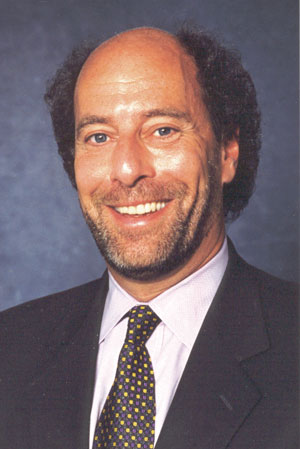Lawyers have applauded the Ontario government for introducing family law reforms, but say further modernization is essential.

“I’d like the government to continue to look to lawyers for more family law reforms, because there’s a few things that are pretty simple fixes,” says Toronto family law lawyer Grant Gold.
The province last week announced plans to bring in legislation it said will improve protection of women and children and cut the financial and emotional toll of court proceedings.
The proposed reforms would see breaches of restraining orders dealt with as criminal offences; ensure that courts hear information regarding a violent past before deciding on custody transfers to non-parents; simplify the rules regarding division of pensions; and bring in automatic annual financial disclosure to cut down on battles over child support.
The child custody reforms follow the August death of seven-year-old Katelynn Sampson in Toronto, whose severely beaten body was found by police. Custody of Sampson had been granted to Donna Irving and Warren Johnson, as her mother felt unable to care for the child due to a drug addiction.
Irving and Johnson now face first-degree murder charges. Premier Dalton McGuinty promised to take action after it was revealed that Irving’s criminal history for drug use, violence, and prostitution wasn’t revealed at the custody hearing.
“No one should live in fear in their own homes, which is why we propose to change child custody and restraining order laws to protect Ontario’s women and children,” Attorney General Chris Bentley said in a prepared statement.
“These reforms would also help families going through separation spend less on family court proceedings, and more on getting on with their lives.”
Gold says practitioners will be most relieved by the regulations aimed at simplifying pension splitting.
“If you look at the assets most ordinary people have, it’s usually a house and a pension, and pensions were the subject of a lot of litigation,” says Gold, who advised the AG on the proposed changes.
“The pension part of this is going to make things more simple for us to divide them.”
The mandatory annual disclosure for child support should be automatic, says Gold, noting many other provinces already have such a rule in place. He and many other lawyers already insert such requirements in separation agreements, says Gold.
“It follows from the case law that says there’s an ongoing obligation for support payers to make disclosure,” he says. “I think now it’s just codified, and everyone’s going to know they have to do it, and they should do it.”
Gold says a major area where further change is needed to family law relates to matrimonial homes. Currently, a spouse who brings in a home to a marriage that becomes the sole home for the couple is not permitted to recoup the value of the home upon separation, says Gold.
However, he notes, if a spouse invests an amount of money equal to the value of that matrimonial home in a GIC, they get the full value of that GIC upon separation. Similar requirements exist for gifts or inheritance funds spent on the matrimonial home, says Gold.
“I think that’s unfair,” he says. “I think it comes from when the legislation came out in 1986, there was a perception that in those days certainly, women were the disadvantaged from a family law perspective.
I think the thinking back then was that, if the family falls apart, people are going to need a place to live. So let’s agree that the home’s special.”
Tom Dart, chairman of the Ontario Bar Association’s family law section, says the OBA is pleased with the reforms and pleased to see Bentley reaching out for consultation with the bar.
“He’s been very, very helpful and attentive to what we’ve been concerned about,” says Dart. “Law reform’s an ongoing thing. I’m sure [there are] other things we could be doing in the area of family law, so hopefully this is the start to some reforms that have been sought for some time.”

 “I’d like the government to continue to look to lawyers for more family law reforms, because there’s a few things that are pretty simple fixes,” says Toronto family law lawyer Grant Gold.
“I’d like the government to continue to look to lawyers for more family law reforms, because there’s a few things that are pretty simple fixes,” says Toronto family law lawyer Grant Gold.